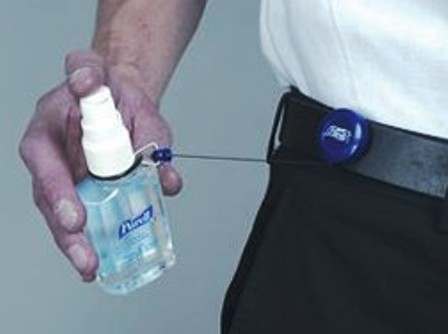
Millions of workdays will be lost in the coming months as UK workplaces are hit by cold viruses and swine flu returns, despite the fact that introducing some simple precautions can significantly reduce the number of casualties according to workplace equipment provider Slingsby.
Figures from the CBI reveal there were 180 million sick days taken in the UK in 2009 costing employers around £17 billion and colds and flu are still cited as one of the main causes of short-term absence.
Lee Wright, Marketing Director of Slingsby which supplies more than 35,000 products to all industries, says: "Colds and flu cost the UK's economy millions of pounds in lost productivity every year but the cost of illness to employers is about more than just statutory sick pay. In addition to people being off work there's also a knock-on effect for the wider workforce, for example, low morale if people are having to cover for sick colleagues and loss of income due to sales being missed or work not getting done.
"In recent weeks we've also seen the return of swine flu as well and there are fears that this strain could be more dangerous than last time. The good news though is that there are plenty of precautions that both workplaces and individuals can take to prevent the spread of these viruses."
Slingsby has compiled a list of guidelines that workplaces should encourage employees to follow in order to maintain a healthy environment:-
Wash hands regularly - This is one of the best ways to prevent the spread of colds. Frequent hand washing kills viruses that are acquired from touching surfaces used by other people so ensure all sinks and wash rooms have well stocked soap dispensers or antibacterial hand wash present.
Avoid touching your face - especially the nose, mouth, and eye areas, if you are around someone with a cold or have been touching surfaces in a public area.
Stop smoking - cigarette smoke can irritate the airways and increase susceptibility to colds and other infections.
Use disposable cups and cutlery - These are good in busy environments because they can be thrown away after each use and prevent the accidental spread of viruses from sharing cups etc.
Keep surfaces clean - door knobs, keyboards, light switches, telephones, remote controls, desks and work surfaces can all harbour viruses for hours after their use by an infected person. Ensure surfaces are cleaned regularly with soap and water or a disinfectant solution.
Paper towels are good in kitchens and bathrooms for hand washing because germs can live for several hours on cloth towels.
Control stress. Studies have shown that people experiencing stress have weakened immune systems and are more likely to catch a cold than their calmer counterparts.
Finally Lee adds: "A lot of employees feel compelled to still go to work if they have colds and flu but it's important to take common sense into account and if there's a chance that a person could infect the rest of the workforce, then it really does makes sense for them to stay away or work from home until they fully recover."